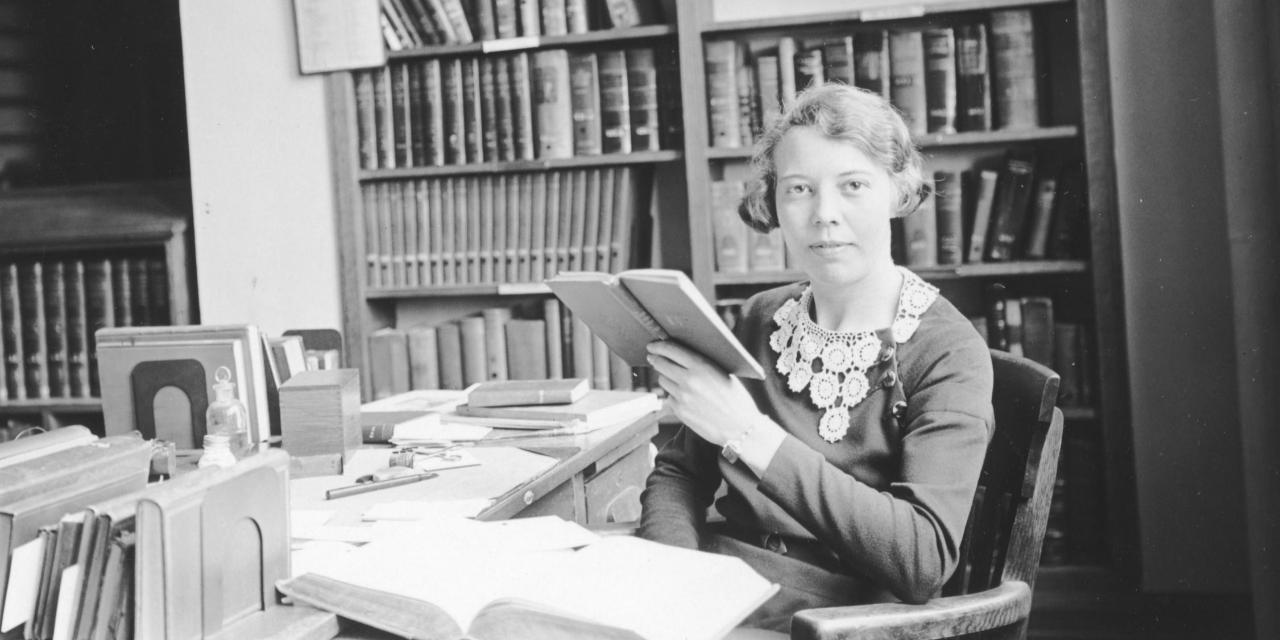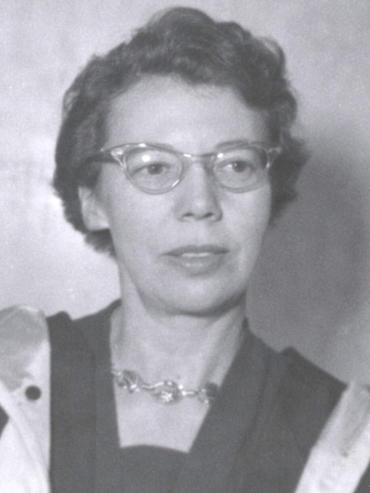Campus to community
In 1942, German U-boats fired torpedoes into the cliffs at the entrance to The Narrows.
Later, they sank several vessels anchored at Bell Island.
To thwart the U-boat threat, a strict blackout regime was issued for St. John’s and the communities around Conception Bay.
The streetlights remained dark. The lighthouse beacon at Fort Amherst was switched off. Curtains were drawn in every home across the city to prevent light from escaping into the night.
Most people remained inside and tuned their dials to VONF, the public radio broadcaster.
If they tuned into the station’s library broadcast, they may have heard the voice of Sarah “Sadie” Organ reading from the work of classic novelists like Jane Austen or Charles Dickens.
Prior to the war, Dr. Organ had been a constant presence in the community, promoting art, drama, literature and literacy. In wartime, she used radio to reach out and provide an enlightened form of entertainment in dark times.
She spent her entire career looking for new ways to unite the campus with the wider community.
Dr. Organ was born in St. John’s. After graduating from high school, with a strong aptitude for mathematics, she entered Memorial University College (MUC) to study math and science in 1927.
In those days, these disciplines were almost exclusively the domain of men, so Dr. Organ was in the minority in her courses. But she was also at the top of her class.
She completed her first two years of undergraduate work at MUC in 1929, won the college’s most prestigious student award — the Senior Jubilee Scholarship — and finished her first-class honours degree in math and physics at McGill University in Montreal.
Upon returning home, Dr. Organ became the first MUC grad to work at the college when she took on the role of part-time librarian. In 1933, she accepted the position on a full-time basis.
She was one of the first MUC grads to teach at her alma mater and became the first woman to lecture in mathematics at the college.

As Memorial’s librarian for over 25 years, Sadie Organ was instrumental in the development and promotion of the province’s public libraries as well. Photo from Memorial University Archives.
As a librarian and math instructor, she carried a considerable workload. Yet she still found time to play an active role in college life.
Dr. Organ dedicated her spare time to directing plays performed by the students of Memorial’s Dramatic Society. She offered evening classes for people from the community interested in discussing literature.
And because she saw no boundary between campus and community, she was often a featured speaker around town, discussing everything from gardening to art or reading from great works of fiction.
Dr. Organ was instrumental in developing the province’s public library system. She worked on the committee whose resolutions eventually led to the Public Libraries Act in 1935.
As a lover of theatre, both as a director and performer, she was a part of a small group who envisioned the creation of an amateur theatre company in St. John’s. Their ideas were inspired by the Little Theatre Movement popular in the United States at the time, which focused on presenting experimental and socially relevant plays that professional troupes might overlook.
These activities led to the St. John’s Players, now the oldest amateur drama group in the province.
But just before the troupe officially formed in 1937, Dr. Organ was offered a fellowship from the Carnegie Corporation to pursue a graduate degree in library science.
She took a sabbatical from MUC and earned her master’s from the University of Michigan in Ann Arbor.
With her graduate work complete, she returned to her former roles and began teaching library science as well.
She also returned to the St. John’s Players and even appeared in the premiere performance of the first full-length play ever written by a Newfoundlander — “The Road to Melton” by Grace Butt.
Dr. Organ worked with her peers to bring local art to the wider community through exhibitions and events. At times, Water Street would be transformed into a free pedestrian art gallery.
She brought an artistic touch to the Cap and Gown, the college yearbook, adding her own carefully crafted linocuts to the publication.
All the while, she was working consistently to grow Memorial’s library.
Her time as librarian was challenging. Space at the Parade Street campus was limited. But she strove to create a library that functioned in the best interests of students.
Dr. Organ’s professional contributions came at a time when a woman was expected to give up her career upon marrying. In fact, the college’s Board of Governors instituted policies in 1940 that restricted hiring married women and even led to the demotion of female faculty members.
And while Dr. Organ did marry, it was only after a distinguished 25-year career.
Her marriage took her away from St. John’s for over a decade. But when she returned in 1969, she immediately became an active volunteer with the Memorial University Alumni Association. In January of 1972, she was elected to the Board of Regents (as Mrs. Sadie Dixon).
In 1974, she was awarded an honorary degree by Memorial, just four months before her death.
For nearly 50 years, Dr. Organ filled almost every conceivable role at Memorial: student, alumni, staff, faculty, volunteer and regent. She was a trailblazer in math and the sciences. She was an artist, a performer and an impassioned promotor of the arts.
She found ways to open the college’s doors to everyone and brought Memorial’s values and aspirations with her as one of our greatest ambassadors to the community.
